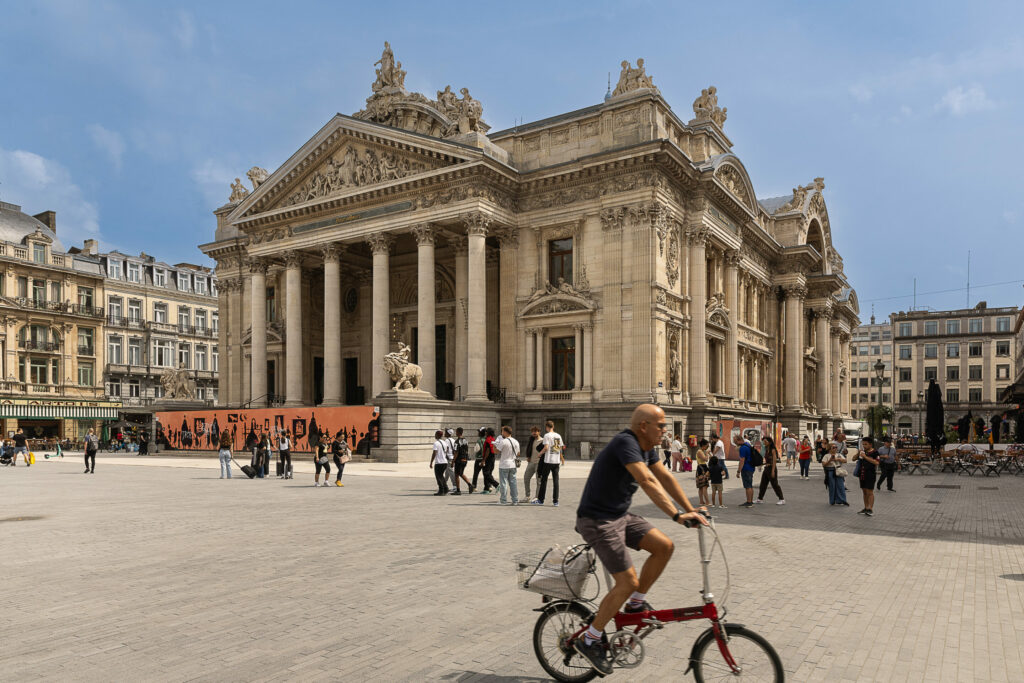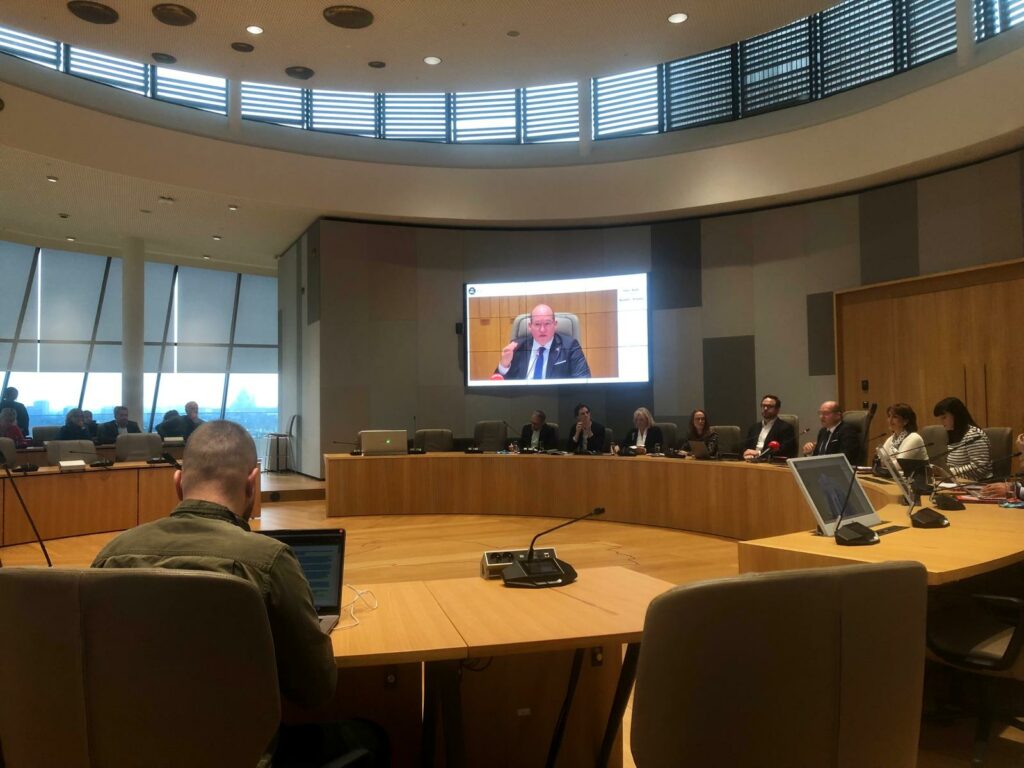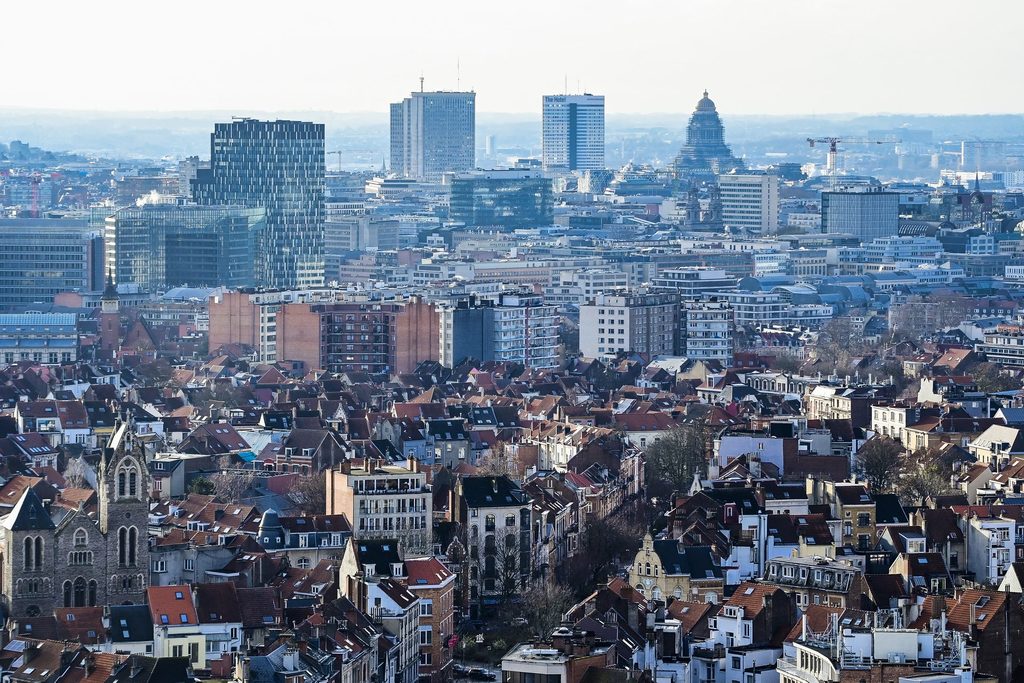The new municipal council for the City of Brussels presented its plan to make Brussels 1000 a safer, cleaner and overall more appealing place over the next six years.
The socialist PS-Vooruit, liberal MR+ and centrist Les Engagés-CD&V lists reached a majority agreement to govern the City of Brussels in late November. The parties all share the ambition to make Brussels an "even more attractive city."
"After weeks of hard work, we are proud to present our coalition programme this afternoon. This is a supportive and ambitious plan that will make our city more attractive and sustainable by 2030," said Mayor Philippe Close (PS) during a press conference in BruCity on Wednesday in which the 240-page majority agreement was presented.
The document contains hundreds of measures for the city and will entail investing in high-quality, accessible public services, Close said. The plan ultimately strives to create a living environment "that remains pleasant, calm and clean."
No more bikes and e-scooters on Anspach
One of the stand-out measures that will soon come into force is a ban to remove bicycles and e-scooters from some of the city's main pedestrian areas. This is currently a problem on Boulevard Anspach, the central walkway between Place Fontainas and De Brouckère.
In the daytime and evening this area will be exclusively for pedestrians. Two-wheeled soft transport modes will instead circulate on the parallel streets of Rue de Laeken and Rue Van Artevelde (effectively the same stretch of road). Works are currently ongoing to prepare bike lanes.

Boulevard Anspach outside Bourse, where cyclists currently ride alongside pedestrians. Credit: Belga
Responsible, clean and safe
Close emphasised that Brussels should be a "responsible city" that strictly manages its budget. He said that his council "will optimise resources and find new sources of revenue without increasing the overall fiscal pressure."
Additionally, the new council stressed the importance of respecting the city's "historical, natural and public heritage" while also making pavements more accessible and creating "cool-off spots, green spaces and aesthetic furnishings to replace concrete blocks."
Cleanliness will also become a priority, with public and underground rubbish bins installed, more street sweepers, and a comprehensive rat control plan.

City of Brussels municipal council. Credit: The Brussels Times
Close outlined a greater focus on security, especially through "an integrated approach to prevention, care, public health and the fight against drug trafficking. Additionally, the city will take "firm action" against street racing and nuisance while strengthening patrols and surveillance systems.
A prevention plan will be implemented to tackle homelessness. This will focus on shelter, counselling and cooperation with social actors. Strong efforts will be made to strengthen healthcare in the capital.
The council will also step up measures against illegal tourist accommodations by issuing a progressive tax for homeowners with vacant properties. A fourth general "housing plan" will aim to make housing more affordable for Brussels residents.

